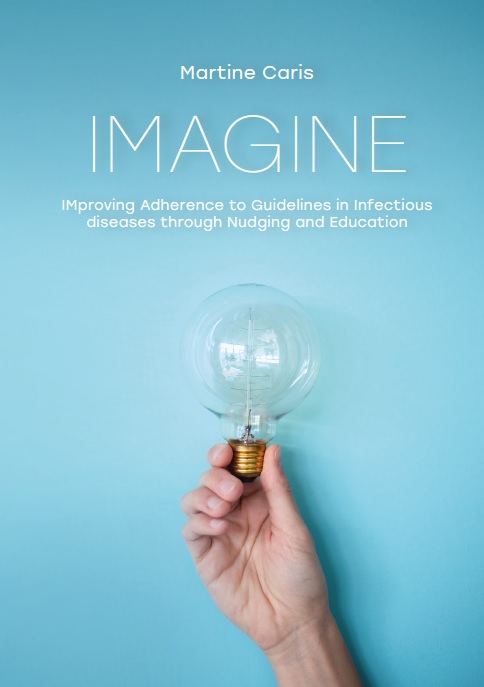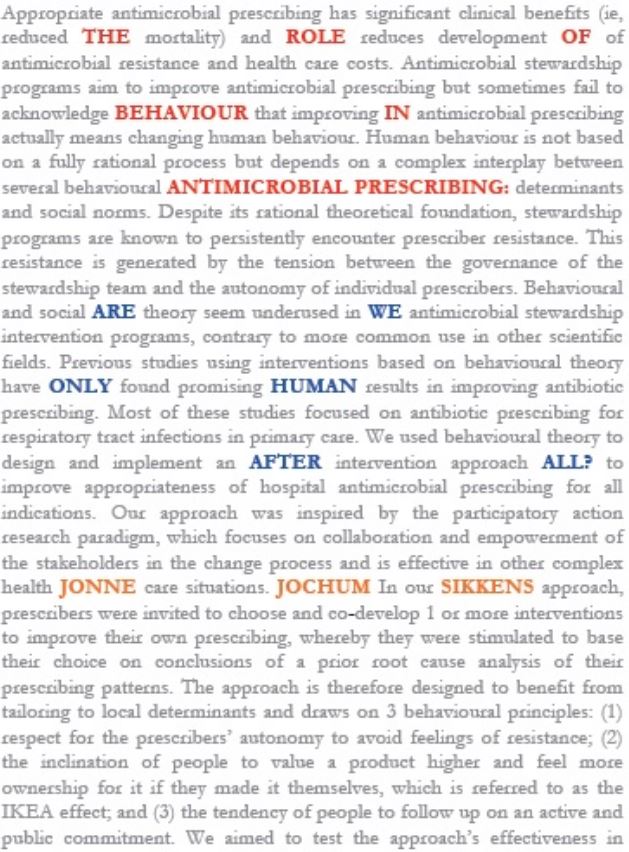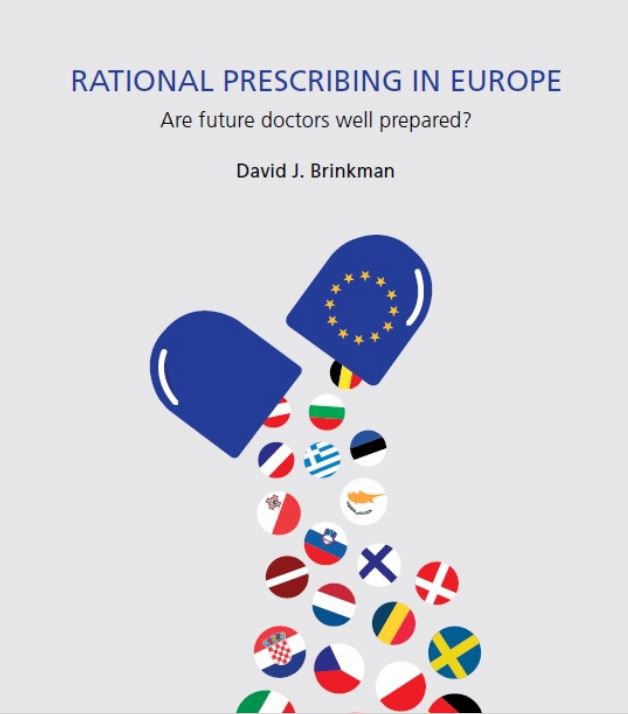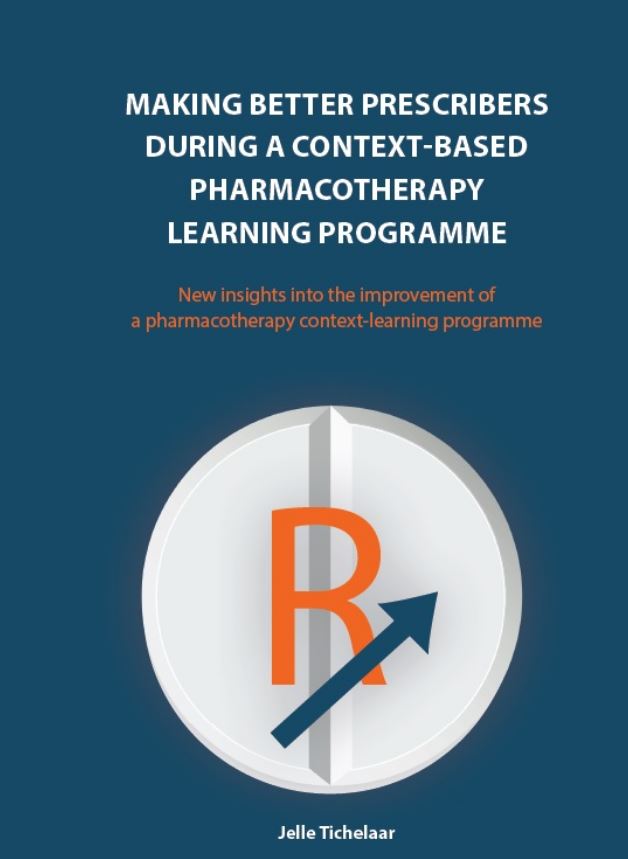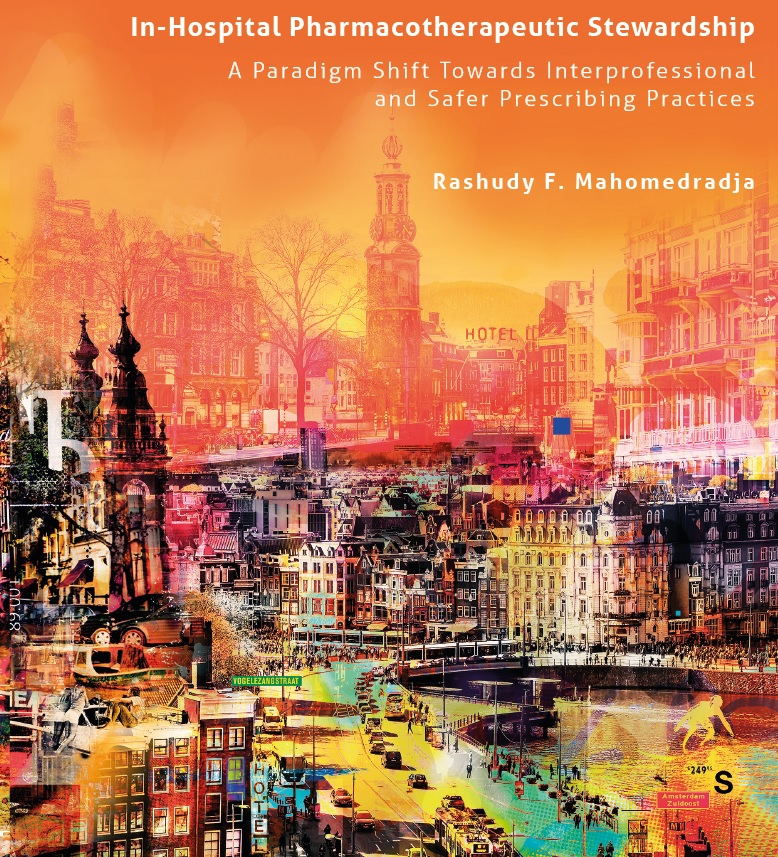
Improving medication- and patient safety by improving in-hospital prescribing
Period 2019-2025
Prescribing errors (PEs) in the in-hospital setting, resulting from inappropriately prescribed medication, can cause adverse drug events (ADEs) resulting in patient harm, prolonged hospital stay and hospital readmission. Over the past decades, this challenge remains a worldwide topic of awareness resulting in the development of several intervention strategies. Despite, numbers are not declining. Development of such strategies requires insight and understanding of factors influencing in-hospital prescribing process. In this thesis we will explore a multifaceted in-hospital intervention by a multidisciplinary team, consisting of stakeholders in the in-hospital prescribing process – medical doctors and pharmacists. We hypothesize that this thesis will provide insight at which points in the chain of prescribing PEs occur, what their root causes are, what risk factors are for PEs and what the effect is of such a multidisciplinary in-hospital team.
PhD-student: Rashudy Mahomedradja, r.mahomedradja@amsterdamumc.nl
Promotor: Prof. dr. M.A. van Agtmael
Co-promotors: Dr. J. Tichelaar & Dr. K. Sigaloff
Download here
Prescribing errors (PEs) in the in-hospital setting, resulting from inappropriately prescribed medication, can cause adverse drug events (ADEs) resulting in patient harm, prolonged hospital stay and hospital readmission. Over the past decades, this challenge remains a worldwide topic of awareness resulting in the development of several intervention strategies. Despite, numbers are not declining. Development of such strategies requires insight and understanding of factors influencing in-hospital prescribing process. In this thesis we will explore a multifaceted in-hospital intervention by a multidisciplinary team, consisting of stakeholders in the in-hospital prescribing process – medical doctors and pharmacists. We hypothesize that this thesis will provide insight at which points in the chain of prescribing PEs occur, what their root causes are, what risk factors are for PEs and what the effect is of such a multidisciplinary in-hospital team.
PhD-student: Rashudy Mahomedradja, r.mahomedradja@amsterdamumc.nl
Promotor: Prof. dr. M.A. van Agtmael
Co-promotors: Dr. J. Tichelaar & Dr. K. Sigaloff
Download here
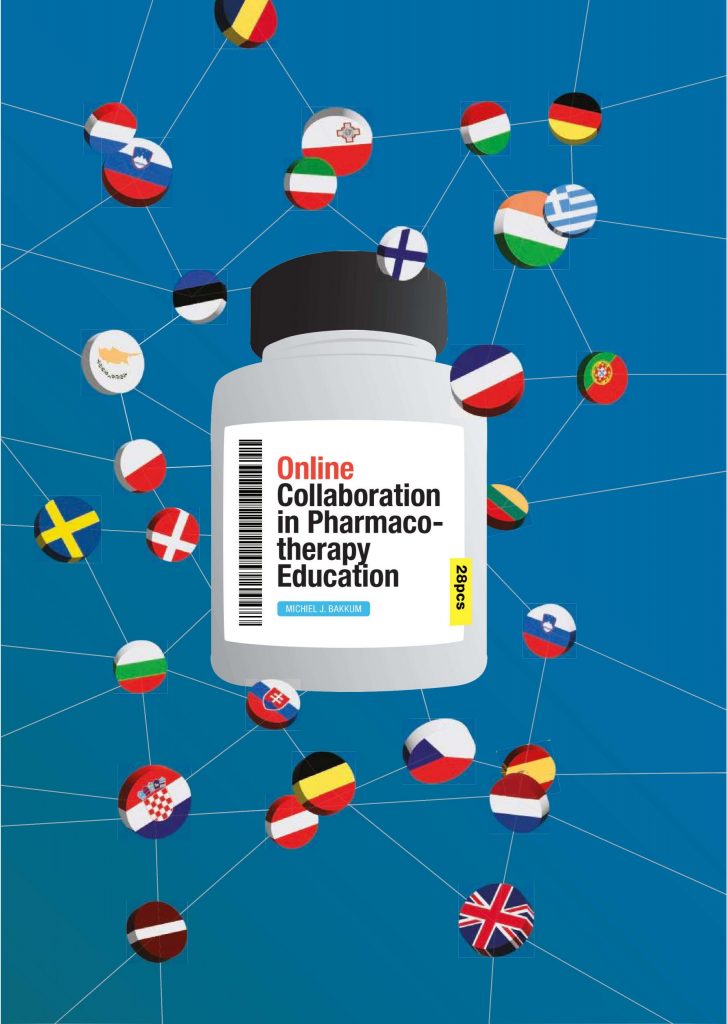
Improving prescribing with digital learning
Period 2017 – 2025
Medical students and junior doctors in the Netherlands and other European countries have low self-reported prescribing competence and feel unprepared for prescribing medicine. Therefore, efforts are made to improve both undergraduate and graduate prescribing education. Digital learning may be ideal for this purpose, since it has several benefits over traditional learning. For example digital learnings are student-centered, placing the learner in charge of the time, pace, place and order in which they study. This is a specific asset when teaching busy clinicians. Moreover, digital learnings require a single investment of time and resources, after which they may be distributed and used extensively, without additional costs. This creates possibilities for national or even international courses to be developed. However, much remains unknown about the effects of digital learning. We aim to evaluate the effect of digital learning in prescribing practice and identify quality indicators for digital learning modules in order to develop the perfect digital learning. Moreover, future physicians are assisted by a growing number of clinical decision support systems (CDSS). We will develop a CDSS for the most prevalent and serious prescribing errors . We hypothesize that these systems may not only help to reduce prescribing errors, but have important education effects as well. This animation illustrates the goal of de CDSS.
PhD-student: Michiel Bakkum, m.bakkum@amsterdamumc.nl
Promotor: Prof. dr. M.A. van Agtmael
Co-promotors: Dr. J. Tichelaar & Dr. M.C. Richir
Download here
Medical students and junior doctors in the Netherlands and other European countries have low self-reported prescribing competence and feel unprepared for prescribing medicine. Therefore, efforts are made to improve both undergraduate and graduate prescribing education. Digital learning may be ideal for this purpose, since it has several benefits over traditional learning. For example digital learnings are student-centered, placing the learner in charge of the time, pace, place and order in which they study. This is a specific asset when teaching busy clinicians. Moreover, digital learnings require a single investment of time and resources, after which they may be distributed and used extensively, without additional costs. This creates possibilities for national or even international courses to be developed. However, much remains unknown about the effects of digital learning. We aim to evaluate the effect of digital learning in prescribing practice and identify quality indicators for digital learning modules in order to develop the perfect digital learning. Moreover, future physicians are assisted by a growing number of clinical decision support systems (CDSS). We will develop a CDSS for the most prevalent and serious prescribing errors . We hypothesize that these systems may not only help to reduce prescribing errors, but have important education effects as well. This animation illustrates the goal of de CDSS.
PhD-student: Michiel Bakkum, m.bakkum@amsterdamumc.nl
Promotor: Prof. dr. M.A. van Agtmael
Co-promotors: Dr. J. Tichelaar & Dr. M.C. Richir
Download here
Promoting pharmacovigilance in our future healthcare professionals
Period 2016-2023
Millions of patients experience adverse drug reactions (ADRs) from the use of medicinal drugs. These symptoms can range from a mild headache to hospital admissions and even death. With the increasing use of drugs the number and influence of ADRs seem to be increasing. Pharmacovigilance, the monitoring of ADRs after marketing approval, is essential for identifying these previously undetected, uncommon, or serious ADRs and for improving understanding of drug risk profiles and medication safety. Despite this essential task our healthcare professionals are mostly unaware of the extent of the problem and essential competences to adequately monitor ADRs are lacking. In this thesis/PhD project we will research the educational value of interventions that promote pharmacovigilance in predominantly undergraduate medical education. We hypothesize that context based learning (CBL) in pharmacovigilance education can substantially increase intrinsic motivation on medication safety, enhance ADR-reporting and drug monitoring responsibilities and ultimately lead to safer use of medicinal drugs in our future healthcare professionals.
PhD-student: Michael Reumerman, m.reumerman@amsterdamumc.nl
Promotor: Prof. dr. M.A. van Agtmael
Co-promotors: Dr. J. Ticherlaar & Dr. M.C. Richir
Download here
Millions of patients experience adverse drug reactions (ADRs) from the use of medicinal drugs. These symptoms can range from a mild headache to hospital admissions and even death. With the increasing use of drugs the number and influence of ADRs seem to be increasing. Pharmacovigilance, the monitoring of ADRs after marketing approval, is essential for identifying these previously undetected, uncommon, or serious ADRs and for improving understanding of drug risk profiles and medication safety. Despite this essential task our healthcare professionals are mostly unaware of the extent of the problem and essential competences to adequately monitor ADRs are lacking. In this thesis/PhD project we will research the educational value of interventions that promote pharmacovigilance in predominantly undergraduate medical education. We hypothesize that context based learning (CBL) in pharmacovigilance education can substantially increase intrinsic motivation on medication safety, enhance ADR-reporting and drug monitoring responsibilities and ultimately lead to safer use of medicinal drugs in our future healthcare professionals.
PhD-student: Michael Reumerman, m.reumerman@amsterdamumc.nl
Promotor: Prof. dr. M.A. van Agtmael
Co-promotors: Dr. J. Ticherlaar & Dr. M.C. Richir
Download here
IMAGINE: IMproving Adherence to Guidelines in Infectious diseases through Nudging and Education
Period 2014-2019
All hospitals strive for sound antibiotic and infection prevention policies, but in the Netherlands adherence to hand hygiene guidelines is only 20% and inappropriate prescribing of antibiotics is frequent with 30-70% guideline deviation. In hospitals, mainly junior doctors fulfil the role of ward-physician. They are responsible for the majority of antibiotic prescriptions and play an essential role in preventing healthcare associated infections through adequate hand hygiene. These responsibilities are to be met in a stressful period of transition from student to physician, during which they perceive a lack of knowledge and skills, specifically in prescribing medication. Education at commencement of work, aimed at practicing guideline-based medicine in busy daily practice could facilitate this transition. As sound preparation alone is insufficient to change behaviour and guideline adherence detiorates with experience, measures to support the effect of such education are essential. One such method, not yet commonly applied in health care, is nudging: a friendly push to encourage desired behaviour. Combining preparatoy education and behavioural nudges seems perfectly suited to improve antibiotic prescribing and infection prevention among junior doctors.
PhD-student: Martine Caris, m.caris@amsterdamumc.nl
Promotors: Prof.dr. Vandenbroucke & Prof.dr. M. Kramer
Co-promotor: Prof.dr. M.A. van Agtmael
Download here
All hospitals strive for sound antibiotic and infection prevention policies, but in the Netherlands adherence to hand hygiene guidelines is only 20% and inappropriate prescribing of antibiotics is frequent with 30-70% guideline deviation. In hospitals, mainly junior doctors fulfil the role of ward-physician. They are responsible for the majority of antibiotic prescriptions and play an essential role in preventing healthcare associated infections through adequate hand hygiene. These responsibilities are to be met in a stressful period of transition from student to physician, during which they perceive a lack of knowledge and skills, specifically in prescribing medication. Education at commencement of work, aimed at practicing guideline-based medicine in busy daily practice could facilitate this transition. As sound preparation alone is insufficient to change behaviour and guideline adherence detiorates with experience, measures to support the effect of such education are essential. One such method, not yet commonly applied in health care, is nudging: a friendly push to encourage desired behaviour. Combining preparatoy education and behavioural nudges seems perfectly suited to improve antibiotic prescribing and infection prevention among junior doctors.
PhD-student: Martine Caris, m.caris@amsterdamumc.nl
Promotors: Prof.dr. Vandenbroucke & Prof.dr. M. Kramer
Co-promotor: Prof.dr. M.A. van Agtmael
Download here
Dutch Unique Method for Antimicrobial Stewardship (DUMAS)
Period 2011-2019
Many antimicrobial stewardship programs fail to consider behavioral, cultural and organizational factors in their approach. They lack clear analysis of the root causes of inappropriate prescribing at the ward level. This may lead to suboptimal interventions, especially on the long term. The Dutch Unique Method for Antimicrobial Stewardship (DUMAS) project represents a new approach by using participatory action research (PAR). In essence, we measured antimicrobial appropriateness on seven wards in two hospitals and presented our results to the prescribing physicians themselves and asked them to reflect on it. We also presented them the findings of a root cause analysis of their inappropriate prescriptions, and we subsequently asked us what they wanted and needed to improve (e.g. better guidelines, education). We then acted upon these wishes in close collaboration with them. For instance, one department with prior low guideline adherence wished to rewrite the antibiotic guideline and so we did and appropriateness increased afterwards. Overall, the DUMAS approach was associated with a 13% increase in antimicrobial appropriateness sustained for 12 months post intervention-start. We found no reduction in antimicrobial consumption.
PhD-student: Jonne Sikkens, j.sikkens@amsterdamumc.nl
Promotor: Prof.dr. M. Kramer
Co-promotor: Prof.dr. M.A. van Agtmael
Download here
Many antimicrobial stewardship programs fail to consider behavioral, cultural and organizational factors in their approach. They lack clear analysis of the root causes of inappropriate prescribing at the ward level. This may lead to suboptimal interventions, especially on the long term. The Dutch Unique Method for Antimicrobial Stewardship (DUMAS) project represents a new approach by using participatory action research (PAR). In essence, we measured antimicrobial appropriateness on seven wards in two hospitals and presented our results to the prescribing physicians themselves and asked them to reflect on it. We also presented them the findings of a root cause analysis of their inappropriate prescriptions, and we subsequently asked us what they wanted and needed to improve (e.g. better guidelines, education). We then acted upon these wishes in close collaboration with them. For instance, one department with prior low guideline adherence wished to rewrite the antibiotic guideline and so we did and appropriateness increased afterwards. Overall, the DUMAS approach was associated with a 13% increase in antimicrobial appropriateness sustained for 12 months post intervention-start. We found no reduction in antimicrobial consumption.
PhD-student: Jonne Sikkens, j.sikkens@amsterdamumc.nl
Promotor: Prof.dr. M. Kramer
Co-promotor: Prof.dr. M.A. van Agtmael
Download here
Learning in a Student Run Clinic
Period 2013-2018
Student run clinics (SRCs) are outpatient clinics and exist for more than forty years now. They are completely run and organized by undergraduate medical students. These clinics were founded as free clinics in order to deliver care to patients who otherwise could not afford or attain regular (insured) healthcare. In this thesis/PhD project we will research the educational value of the SRC concept for medical (pharmacotherapy) education. Learning in a student run clinic is ultimate context based learning. Context based learning (CBL) is learning in a setting similar to the setting of the future profession. The effects of CBL include the boost of intrinsic motivation and the willingness of students to invest in themselves. The context part could be further enhanced by an earlier introduction of bachelor students into the clinic including its attending responsibilities. Thereby, they can experience the clinical setting, get responsibilities and learn. We hypothesize this context would boost their intrinsic motivation and would lead to efficient and effective training of complex skills like prescribing.
PhD-student: Tim Schutte, t.schutte@amsterdamumc.nl
Promotor: Prof.dr. M.A. van Agtmael
Co-promotor: Dr. J. Tichelaar & Dr. M.C. Richir
Download here
Student run clinics (SRCs) are outpatient clinics and exist for more than forty years now. They are completely run and organized by undergraduate medical students. These clinics were founded as free clinics in order to deliver care to patients who otherwise could not afford or attain regular (insured) healthcare. In this thesis/PhD project we will research the educational value of the SRC concept for medical (pharmacotherapy) education. Learning in a student run clinic is ultimate context based learning. Context based learning (CBL) is learning in a setting similar to the setting of the future profession. The effects of CBL include the boost of intrinsic motivation and the willingness of students to invest in themselves. The context part could be further enhanced by an earlier introduction of bachelor students into the clinic including its attending responsibilities. Thereby, they can experience the clinical setting, get responsibilities and learn. We hypothesize this context would boost their intrinsic motivation and would lead to efficient and effective training of complex skills like prescribing.
PhD-student: Tim Schutte, t.schutte@amsterdamumc.nl
Promotor: Prof.dr. M.A. van Agtmael
Co-promotor: Dr. J. Tichelaar & Dr. M.C. Richir
Download here
Rational prescribing in Europe
Period 2015-2018
Every medical graduate is by law authorized to prescribe drugs. In order to do this safely and effectively, they should have acquired a minimum set of prescribing competencies at the point of graduation. Graduates should have at least sufficient knowledge of commonly prescribed drugs and the ability to adequately treat the most common diseases. Whether this is the case in the Netherlands, or even Europe, remains unclear. In this thesis/PhD project, we will investigate several prescribing competencies of nearly graduates: essential knowledge, prescribing skills and attitudes (self-reported confidence, preparedness and opinions). Different methods, such as clinical cases, knowledge assessments and questionnaires will be used and compared with each other. This thesis not only includes graduates in the Netherlands but also in a large number of European countries. We hypothesize that graduates in The Netherlands and Europe lack essential prescribing competencies and that effective undergraduate education in clinical pharmacology and therapeutics is crucial to improve this gap.
PhD-student: David Brinkman, d.brinkman@amsterdamumc.nl
Promotor: Prof.dr. M.A. van Agtmael
Co-promotor: Dr. J. Tichelaar & Dr. M.C. Richir
Download here
Every medical graduate is by law authorized to prescribe drugs. In order to do this safely and effectively, they should have acquired a minimum set of prescribing competencies at the point of graduation. Graduates should have at least sufficient knowledge of commonly prescribed drugs and the ability to adequately treat the most common diseases. Whether this is the case in the Netherlands, or even Europe, remains unclear. In this thesis/PhD project, we will investigate several prescribing competencies of nearly graduates: essential knowledge, prescribing skills and attitudes (self-reported confidence, preparedness and opinions). Different methods, such as clinical cases, knowledge assessments and questionnaires will be used and compared with each other. This thesis not only includes graduates in the Netherlands but also in a large number of European countries. We hypothesize that graduates in The Netherlands and Europe lack essential prescribing competencies and that effective undergraduate education in clinical pharmacology and therapeutics is crucial to improve this gap.
PhD-student: David Brinkman, d.brinkman@amsterdamumc.nl
Promotor: Prof.dr. M.A. van Agtmael
Co-promotor: Dr. J. Tichelaar & Dr. M.C. Richir
Download here
Making better prescribers during a context-based pharmactherapy learning programme
Period 2008-2016
The prescribing of drugs is an essential skills for medical doctors. Given that approximately 50% of all consultations end with a prescriptiuon, it is essential that medical doctors prescribe drugs effectively, safely, and cost-effective. However, the irrational prescribing of drugs seems to be a general problem in medical practice, occasionally leading to serious consequences. Additionally, the transition from medical students to junior doctor is often experienced as a major change, and medical students reported feeling unprerared for prescribing responsibilities. This is perhaps not surprising. because in many clinical clerkships and preclinical curricula focus on establishing the diagnosis, with little time being devoted to therapeutic reasoning. In this PhD-project, we hypothesize that in order to prepare students for their role as therapeutic decision maker and to improve prescribing competencies, they should be trained in the contact of their future profession.
PhD-student: Jelle Tichelaar, j.tichelaar@amsterdamumc.nl
Promotor: Prof.dr. T. de Vries
Co-promotor: Dr. M.C. Richir
Download here
The prescribing of drugs is an essential skills for medical doctors. Given that approximately 50% of all consultations end with a prescriptiuon, it is essential that medical doctors prescribe drugs effectively, safely, and cost-effective. However, the irrational prescribing of drugs seems to be a general problem in medical practice, occasionally leading to serious consequences. Additionally, the transition from medical students to junior doctor is often experienced as a major change, and medical students reported feeling unprerared for prescribing responsibilities. This is perhaps not surprising. because in many clinical clerkships and preclinical curricula focus on establishing the diagnosis, with little time being devoted to therapeutic reasoning. In this PhD-project, we hypothesize that in order to prepare students for their role as therapeutic decision maker and to improve prescribing competencies, they should be trained in the contact of their future profession.
PhD-student: Jelle Tichelaar, j.tichelaar@amsterdamumc.nl
Promotor: Prof.dr. T. de Vries
Co-promotor: Dr. M.C. Richir
Download here


